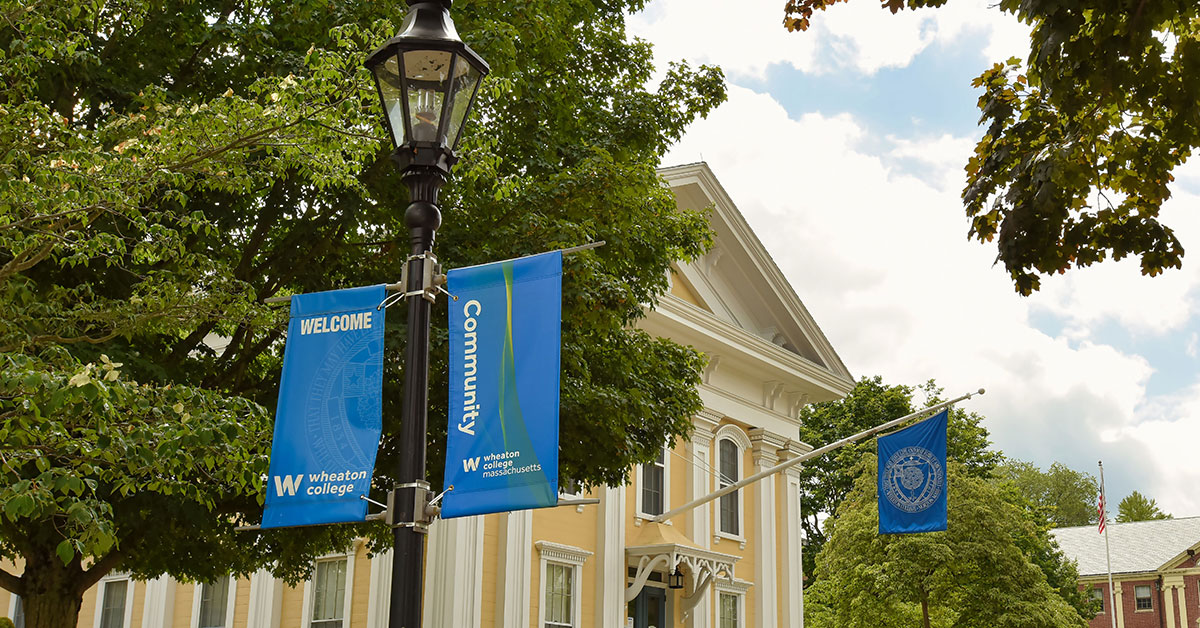Focusing on excellence and equity
In August, colleges and universities across the country received guidance from the U.S. departments of Education and Justice on complying with the Supreme Court’s June 29 decision that ruled out the consideration of race as a factor in admission. Wheaton’s admissions processes will not need to change as a result of this decision, since we assess each student holistically. The advice highlighted a fundamental truth that goes beyond admission decisions, however. “It is important that students—particularly those who are underrepresented—feel a sense of belonging and support once on campus,” the government’s guidance to colleges said. In other words, students need to feel that both the classroom and campus are places where they can share their perspectives, explore their ideas, and be themselves—and be supported in their education.
“Learning is enriched when student bodies reflect the rich diversity of our communities,” the federal agencies noted in their letter to higher education leaders. “Research has shown that such diversity leads to, among other things, livelier and more informative classroom discussions, [a] breakdown of prejudices and increased cross racial understanding, and heightened cognitive development and problem-solving skills.”
This inclusive excellence is the foundation of Wheaton’s strategic priorities and is essential to fostering our collaborative community, which in turn drives our transformative liberal arts education. The college’s commitment to diversity, inclusion and belonging already manifests itself in many ways across campus—LGBTQ+ Safe Zone training sessions, events such as the Martin Luther King Jr. Legacy Celebration and our Lavender and Posse celebrations, theme residences like SAFE Haüs and First Generation House, and campus organizations, including the Diversity, Equity and Access Leadership (DEAL) committees that bring students, faculty and staff together to discuss issues and propose actions.
As a result, Wheaton’s reputation as an institution that welcomes a diverse community continues to grow. For example, the college earned a 4.5 out of 5 on the national Campus Pride rating for 2023, placing us among the top 20 percent nationally. More to the point, 25 percent of the incoming students for the Class of 2027 identify as Black, Indigenous and persons of color. An equal number are first-generation students. In addition, Wheaton College has been recognized by the National Association of Student Personnel Administrators’ Center for First-generation Student Success for our commitment to advancing outcomes for first-generation students. Wheaton is the only institution in Massachusetts to achieve the First Scholars designation and joins an exclusive cohort of 50 nationwide, highlighting our institutionwide approach to equity and success.
Our goal is not merely to sustain the progress that has been made, but to build upon it. This requires ongoing commitment, reflection and action. To better support these efforts, we have united the Marshall Center for Intercultural Learning, the Center for Social Justice and Community Impact, and the Center for Religious and Spiritual Life together under the leadership of Associate Vice President for Institutional Equity and Belonging Luis Paredes. Wheaton is also a member of the Racial Equity and Justice Institute, a national consortium committed to identifying and implementing data-driven strategies to close racial educational equity gaps in higher education, and Paredes serves on their leadership team.
With the start of a new academic year, the college will cultivate an equity-minded emphasis to its work, which includes explicit goal-setting by administrative and academic units. By “equity minded” we mean to intentionally foster a deeper understanding of our community’s varied experiences and actively work toward eliminating disparities in access, success and resources. Another new initiative is the introduction of an Empower Bystander training program that equips students, faculty and staff to interrupt and intervene when bias incidents and prejudicial behavior arise.
In the spring of 2023, The Mellon Foundation awarded Wheaton a competitive $560,000 grant to support humanities-centered curricular pathways to change our thinking about race in health and medicine. Looking ahead, Wheaton will continue to introduce new ways of advancing our shared goals for a diverse and welcoming community. After all, creating a campus environment in which all students feel supported and a sense of belonging is very much in keeping with the principles of equity and access upon which Wheaton was founded as a female seminary nearly 190 years ago. More importantly, it’s fundamental to fulfilling the promise of a truly excellent liberal arts education for our students.

